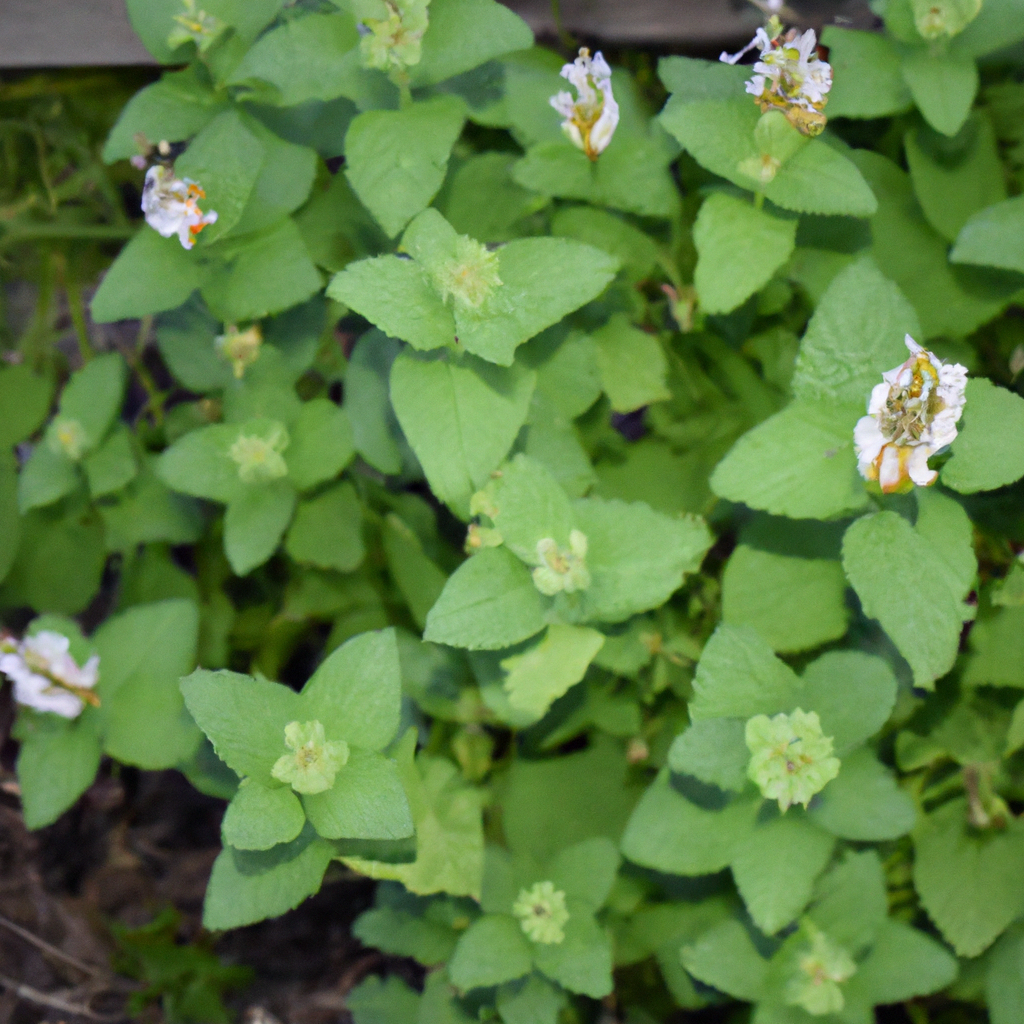Biological Name:
Lemon-Balm: Melissa officinalis
Natural Habitat:
The natural habitat of Lemon-Balm is likely moist, shaded areas in temperate regions, such as forests and meadows.
Description:
Lemon-balm is a type of flowering plant that is commonly found in fields and other grassy areas. It is a member of the Lamiaceae family which also includes plants such as mint and basil. Lemon-balm is an annual or perennial plant that produces small white or yellow flowers and clusters of seeds. The plant is often used as a cover crop to improve soil health and suppress weeds. It is also known for its ability to tolerate a wide range of growing conditions including wet or dry soils. In some areas lemon-balm is considered a weed because of its ability to invade cultivated areas and cause allergies and other health problems.
Frequently Asked Questions (FAQs)
Q: What is lemon balm good for?
A: Lemon balm (Melissa officinalis), a member of the mint family, is considered a calming herb. It was used as far back as the Middle Ages to reduce stress and anxiety, promote sleep, improve appetite, and ease pain and discomfort from indigestion (including gas and bloating, as well as colic).
Source
Q: Is lemon balm antidepressant?
A: Based on meta-analysis results, lemon balm significantly improved mean anxiety and depression scores compared with the placebo (SMD: -0.98; 95% CI: -1.63 to -0.33; p = 0.003), (SMD: -0.47; 95% CI: -0.73 to -0.21; p = 0.0005) respectively, without serious side effects.
Source
Q: Who should not use lemon balm?
A: Stop using lemon balm at least 2 weeks before a scheduled surgery. Thyroid disease: Lemon balm may change thyroid function, reduce thyroid hormone levels, and interfere with thyroid hormone replacement therapy. Avoid lemon balm if you have thyroid disease.
Source
Q: What does lemon balm do to the brain?
A: Lemon balm significantly reduces excitatory transmission in the brain by inhibiting an enzyme called GABA-T that breaks down GABA, thus increasing the amount of GABA available in the brain.
Source
Q: Does lemon balm help with weight loss?
A: Does lemon balm work for weight loss? Because it has anti-inflammatory effects, can help you cope with stress, improves digestion and supports metabolic health, it may be useful for maintaining a healthy weight. It’s a not a magic bullet, but help with weight loss might be a potential secondary effect.
Source
Q: What does lemon balm do to the liver?
A: Nonalcoholic fatty liver disease (NAFLD) ranges in severity from hepatic steatosis to cirrhosis. Lemon balm and its major constituent, rosmarinic acid (RA), effectively improve the liver injury and obesity; however, their therapeutic effects on nonalcoholic steatohepatitis (NASH) are unknown.
Source
Q: Is lemon balm an anti inflammatory?
A: The use of herbs to relieve pain has a long history in the world of medicine. The fact that the essential oil of lemon balm has anti-inflammatory properties supports the traditional use of this herb in the treatment of numerous diseases associated with inflammation or pain (Bounihi et al., 2013).
Source
Q: Does lemon balm cause high blood pressure?
A: In this study in people with essential hypertension, supplementation with lemon balm extract led to a reduction in systolic and diastolic blood pressure. This Study Summary was published on January 4, 2022.
Source
Q: Can I drink lemon balm tea everyday?
A: While more studies are needed to determine how lemon balm tea may help individuals, it does appear that the tea is safe for most people to consume. A person should consult their doctor if they have an underlying condition, such as a thyroid issue, before regularly consuming lemon balm tea.
Source
Q: How does lemon balm make you feel?
A: Lemon balm is said to soothe symptoms of stress, help you to relax, and boost your mood. A 2004 study found that taking lemon balm eased the negative mood effects of laboratory-induced psychological stress. Participants who took lemon balm self-reported an increased sense of calmness and reduced feelings of alertness.
Source
Q: Is lemon balm an antidepressant?
A: Current evidence suggests that lemon balm may be effective in improving anxiety and depressive symptoms, particularly in the acute setting.
Source
Q: Is lemon balm good for depression?
A: Lemon balm has also a significant effect on depression scores, still compared to placebo (SMD = -0.47, 95% CI: -0.73 to -0.21, p = 0.0005). The authors concluded that current evidence suggests that lemon balm may be effective in improving anxiety and depressive symptoms, particularly in the acute setting.
Source
Q: How is lemon balm most commonly used?
A: How to Use Lemon Balm. As a general rule of thumb, treat lemon balm as you would any other fresh herb. It works especially well in place of mint, offering bright, fragrant notes. Add whole lemon balm leaves to green salads, or chiffonade the leaves and scatter them over a fruit salad for added zesty flavor.
Source
Q: Can you eat lemon balm leaves Raw?
A: The whole plant is edible, though its the tender leaves you are after. Lemon balm has a long history of a wide array herbal medicine uses, in particular for soothing, calming and raising the spirit – just one smell of the crushed leaves does all of these for me.
Source
Q: Is lemon balm anti inflammatory?
A: The use of herbs to relieve pain has a long history in the world of medicine. The fact that the essential oil of lemon balm has anti-inflammatory properties supports the traditional use of this herb in the treatment of numerous diseases associated with inflammation or pain (Bounihi et al., 2013).
Source

